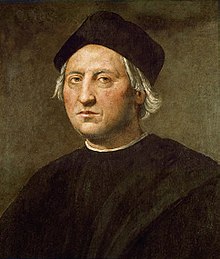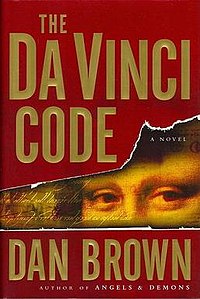Did Columbus Prove that the Earth was Round?
In the early 1800s, Washington Irving (Author of Sleepy Hollow and Rip Van Wnikle) wrote a work of historical fiction titled The Life and Voyages of Christopher Columbus. In it, Irving describes Columbus as working against the popular notion that the earth was flat, and later proving that the earth was round by sailing to America. Of course, it was a fictional story. (Not to mention, that wouldn't really prove that the Earth was round.)
But schoolteachers decided that it was all true, and for two hundred years we've been teaching kids the same nonsense of Columbus and the flat earth theory when, in truth, the Europeans had believed in a round earth for a very long time. Brilliant ancient minds, including Pythagoras and Aristotle, had already proven through mathematical observations that the planet must be round, and this point of view was dominant. Washington Irving either didn't know this, or thought that his idea made a better story. If he had known that he would screw up our schools for two hundred years he might have decided to write about something else.
Of course, some teachers today use this book in the classroom...
Did He Discover America?
I probably don't need to say this, but the Vikings found the Americas long before Columbus. (Of course, their "discovery" is also minimal since people were already here.) The Vikings never set up any real settlements, but used Canada as a place to get lumber and bring it back to their homelands. Historians are still working out the details, some say the Natives chased them away and some say that the Vikings just didn't have the manpower to settle so far away, but we know that Columbus wasn't the first European to get to America.
Not that Columbus would have understood this - he thought he was in India the whole time. (Of course, it looked nothing like Marco Polo's descriptions, so maybe Columbus wasn't too bright.)
Was Columbus a Christian?
If you read some selections from his journal, you'll find that Columbus fancied himself a Believer - but you won't find him acting like one. He doesn't mind writing about the murder of native civilians alongside claims that he is doing his work for God's glory. This is pretty much how everyone wrote in late medieval Iberia, because everyone wanted to court the favor of the church.
I've noticed that in homecoming parades local politicians drive by in cars and show support for the local sports team. Of course, they don't care about the sports team, they just want to be associated with that team in front of the local voters. Medieval Christianity often worked in the same way; it was a very popular religion that everyone wanted to be associated with - even if they didn't care about it.
Was he Arrested in Spain?
Upon returning to Spain after many years of governing in America, the Spanish government put Christopher Columbus in chains and found him guilty of barbaric treatment of natives. His terrible treatment of the American Indians has become Columbus' legacy in recent years, and the old heroic images of Columbus have been replaced by pictures of a savage tyrant. Rightly so.
So, what DID he do?
There is reason to remember him in our books. Columbus' voyages sparked the wave of European colonialism that changed this entire hemisphere forever. It's easy to dislike Columbus, but he does have an important place in the timeline of our world.
Also...
I read one of his letters earlier this year and discovered that Columbus was more complex than we had realized. For example, the letter says that he wanted to use the resources from the New World to fund further Crusades to the Middle East. There's some trivia we didn't learn in school.



13 comments:
I'd never been taught that Columbus proved the earth was round, or that he had much at all to do with the argument. We mainly just learned about his three ships, how he got the job to go on his voyage, where he was from, the mistake of "Indians," and what year he sailed that ocean blue.
So I went to look up which guy it was that I learned argued for a round earth, and I think I may have been confused all along on a different man.
I remember learning that Galileo figured out the earth wasn't the center of the universe and was condemned by the church for this. But apparently all this time I had it in my mind that he was trying to prove the earth was also round while the sun was the center of things...though after looking into it now, the roundness of it wasn't really involved in this story of Galileo at all. So now I'm thinking I wasn't really ever taught a single person or historical point was responsible for our current truth of a round earth. Thanks for making me do some research of my own. Interesting the things that get left out of our education sometimes.
When I was in High School I was shown a cartoon of Columbus' life that included him being laughed at for owning a globe. Sheesh.
Concerning Galileo, MANY people think that he and his contemporaries (Copernicus, Keppler, etc.) were in trouble for teaching a round earth theory. It's very commonly taught that way. I've had to correct grad students from history departments on this matter.
It's one of my goals as an author to one day write a historical satire that future history teachers teach as fact.
"The Vikings never set up any real settlements, but use modern-day British Columbia as a place to get lumber and bring it back to their homelands."
Did you mean to say British Columbia? It's on the Pacific Ocean.
Annie - Oops! Thanks for pointing that out - I've made a change. That sort of thing is embarrassing.
"If you read some selections from his journal, you'll find that Columbus fancied himself a Believer - but you won't find him acting like one. He doesn't mind writing about the murder of native civilians alongside claims that he is doing his work for God's glory."
1. Reference?
2. "You won't find him acting like one..." Huh? Ever? Bro, remember what you're headed for (1 Cor 6:2) and "judge with righteous judgment."
3. Read the wikipedia article on him for a more balanced analysis, supported with references.
Larry:
I'm not going to take the time to put a reference in a blog entry. The journal is available in libraries for anyone who is interested. If this were a research paper I would take the time.
Concerning his spirituality, it doesn't take a theologian to know that the things he describes in his journal are not Christ-like actions. He left us no indication that he was any sort of a Believer. Of course, I can't know his heart, but it's easy to see what's reflected in his writings.
So they did come over to Cananda for timber, but not the BC area on the west coast; somewhere in Canada on the east coast?
Yeah. Sorry about that. Obviously, the Vikings didn't go the the West coast of Canada because that would require them to sail around the world. The settled in the Eastern side briefly.
Neat. I think Vikings and the other cultures from their time & region are very interetsing, but don't know a ton. I really wasn't trying to rub it in, I was just curious. Thanks :)
It's cool. And the Vikings are fascinating. Every time we say "egg" or "sky" we are using a Viking word. They were a very impressive culture.
Didn't Galileo get in trouble with the church by writing a book that made the Pope (who was actually his friend)an idiot?
Adam, you and I had the same schooling. We also probably had the same wrong information about the Mayflower and Pilgrims. I'm afraid that myth was stronger than truth during the late 70s and pretty much the whole 80s in TX public schools. Remember the Alamo? Probably not correctly . . .
You're on to something with Galileo. His predecessor, Copernicus, was never harassed for his heliocentric beliefs, but Galileo was a bit of a trouble-maker.
Post a Comment